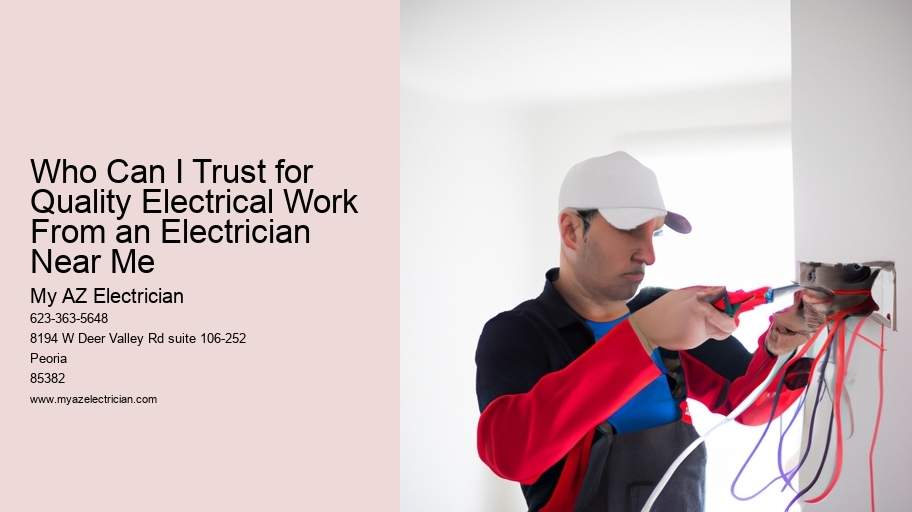In a world where electricity powers our daily lives, the role of a professional electrician is indispensable. They are the guardians of safe and efficient electrical systems, ensuring our homes and businesses remain powered and protected.
However, the path to becoming a professional electrician near you requires more than a mere fascination with wires and circuits. It demands a combination of rigorous education, practical experience, and the acquisition of essential certifications and licenses.
Embark on this journey, and you'll find yourself joining a community committed to delivering reliable power and belonging to a trade that shapes the modern world.
Education and Training Requirements
One must meet certain education and training requirements to become a professional electrician. To embark on this career path, aspiring electricians typically need a high school diploma or equivalent. However, to enhance their prospects, many individuals choose to pursue vocational or technical training programs in electrical systems.
These programs offer comprehensive coursework that covers topics such as electrical theory, blueprint reading, circuitry, and safety measures. Additionally, hands-on training is a crucial component of becoming a professional electrician. Apprenticeships provide aspiring electricians with the opportunity to work under the guidance of experienced professionals, allowing them to gain practical skills and knowledge.
During apprenticeships, individuals learn how to install, maintain, and repair electrical systems in real-world settings. By successfully completing the necessary education and training requirements, individuals can enter the field of professional electrical work with confidence and competence.
Building Practical Experience
Gaining hands-on experience through apprenticeships, as well as actively seeking opportunities for practical application, are essential steps in building a successful career as a professional electrician.
By participating in apprenticeship programs, aspiring electricians have the opportunity to work alongside experienced professionals, honing their skills and gaining valuable industry knowledge. This practical experience allows them to apply the theoretical concepts they have learned in their education and develop a deep understanding of electrical systems.
Actively seeking opportunities for practical application further enhances their expertise and confidence in handling various electrical projects.
To evoke a sense of belonging and emotion in the audience, consider the following nested bullet point list:
- Collaborating with fellow apprentices fosters a supportive community, providing a sense of camaraderie and shared goals.
- Overcoming challenges during hands-on training cultivates resilience and a sense of accomplishment, boosting self-esteem and confidence.
- Contributing to the creation and maintenance of safe and functional electrical systems promotes a sense of purpose and fulfillment.
Building practical experience not only equips electricians with the necessary skills but also helps them develop a strong professional identity within the electrical industry, fostering a sense of belonging and purpose.
Obtaining the Necessary Certifications and Licenses
To become a professional electrician, it is essential to acquire the appropriate certifications and licenses. These certifications and licenses demonstrate that you have the necessary knowledge and skills to safely and effectively perform electrical work.
The specific requirements for certifications and licenses vary by location, but they typically involve completing a combination of classroom training and practical experience, as well as passing an exam. One common certification is the National Electrical Code (NEC) certification, which ensures that electricians are familiar with the latest safety standards and regulations.
Additionally, many states require electricians to obtain a license, which involves meeting certain education and experience requirements and passing a licensing exam. By obtaining these certifications and licenses, electricians can demonstrate their expertise and professionalism, giving clients confidence in their abilities.
What Are the Different Types of Electrical Services Available from an Electrician Near Me
